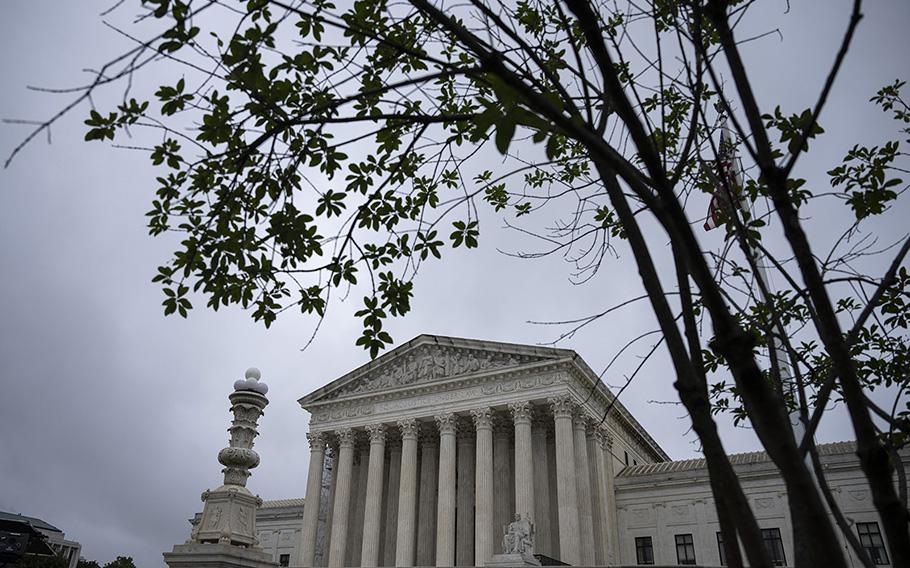
A view of the U.S. Supreme Court on June 22, 2023, in Washington, DC. A nearby event about Supreme Court ethics reform was hosted by progressive advocacy group People for the American Way. (Drew Angerer/Getty Images/TNS)
WASHINGTON (Tribune News Service) — The Supreme Court on Friday rejected a free-speech challenge to a long-standing immigration law that makes it a crime to “encourage or induce” a non-citizen to illegally enter or reside in this country.
By a 7-2 vote, the justices upheld the criminal charges against a Sacramento-area man who charged hundreds of immigrants without documentation up to $10,000 on the phony promise that he could help them become U.S. citizens.
Helaman Hansen was convicted on 15 counts of fraud and two counts of encouraging and inducing unlawful immigration “for private financial gain.” He was sentenced to 20 years in prison.
But he won a partial acquittal from the 9th Circuit Court of Appeals which said the word “encourage” could be read broadly to apply to family members or friends who suggest a non-citizen come to this country or remain here. As a result, the appeals court struck down that provision as overly broad because, if read literally, it could ensnare innocent people.
“We apply the overbreadth doctrine so that legitimate speech relating to immigration law shall not be chilled and foreclosed,” the San Francisco-based appeals court said.
But in United States v. Hansen, the Supreme Court’s justices said they would not stretch the 1st Amendment to protect criminal conduct from prosecution and punishment.
“After concluding that this statute criminalizes immigration advocacy and other protected speech, the 9th Circuit held it unconstitutionally overbroad under the First Amendment,” wrote Justice Amy Coney Barrett for the majority. “That was error. Properly interpreted, this provision forbids only the intentional solicitation or facilitation of certain unlawful acts. It does not ‘prohibi[t] a substantial amount of protected speech’—let alone enough to justify throwing out the law’s ‘plainly legitimate sweep.’”
Justices Sonia Sotomayor and Ketanji Brown Jackson dissented.
Biden administration lawyers had urged the court to reverse the 9th Circuit’s ruling in Hansen’s case and said the law was used to prosecute smugglers who made money by encouraging migrants to illegally enter this country.
©2023 Los Angeles Times.
Visit at latimes.com.
Distributed by Tribune Content Agency, LLC.